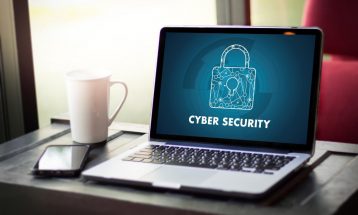In today’s economy, more and more businesses are turning to outsourcing for IT support. However, this can be a tricky process as more and more companies are working remotely. To get started, it’s essential that you find an IT company that knows how to handle IT support for remote workers.
This blog post will explain the benefits of using a managed service provider and why they make great partners in IT support for remote workers.
24/7 IT Support
If you have remote staff who work 24 hours a day, 7 days a week, your IT support personnel must also do so. If a late-night employee has an IT problem but must wait until business hours to resolve it, they may lose money. Even worse, they may go without IT support at a crucial point in their workday.
By using an outsourced company for your IT management needs, you can have 24-hour coverage as well as round-the-clock monitoring of your network systems and internet availability.
Provide Security Protocols
It is essential to be cautious of the potential dangers your remote workforce may face. Employees on a remote team can work from any place in the world. They may connect over unsecured and public networks. Others might obtain data that has been sent if precautions aren’t taken.
As a result, your managed IT support company should make efforts to educate your remote team about the various threats that sensitive company data face. Let them know, for example, about the dangers of ransomware and fraudulent links in phishing emails/messages. You should also make sure to instruct your remote workers on how hackers find their victims.
This way, your employees can take steps to protect themselves. They’ll even be able to know when the IT company is doing their job by keeping an eye on breaches and taking action as soon as they happen.
Here are some other ways managed IT services can help with security:
Two-Factor Authentication (2FA)
With two-factor authentication, employees will need more than just their username and password to access your company resources/databases. They’ll also be given a unique code that changes every 30 seconds; they must enter this code along with the password.
This is a great way to protect sensitive information and keep it away from hackers. An IT company can help you set up and maintain this security feature, and it will also provide extra protection for your remote workers.
- Use a widely recognized password management solution.
- Educate your remote workers about the dangers of using easy-to-guess and simple passwords.
- To assess the preparedness of your remote workers, conduct phishing audits.
- Make sure you have regular backups on hand in case of a data loss.
- To assess the trustworthiness of incoming and outgoing messages, add an email filtering solution.
Manage User Accounts
It’s not as simple as hiring a security company to ensure that you’re protected from cyber-attacks. Your IT company will identify bottlenecks in procedures and suggest remedies. First, ensure that each remote user has an individual username and password to access their account. Next, make sure that all privileges and permissions granted to users are listed separately in a spreadsheet.
Make sure you have regular password audits in place to prevent unauthorized access to your network/systems. This will help monitor the strength of passwords that are currently in use and whether or not they’re up-to-date with current security standards. For example, if an employee leaves your company, ensure their credentials are removed from your systems.
Make sure you have a standard for all your remote workers to follow regarding passwords and other account credentials, such as PINs/passcodes. Both the IT company and yourself should create this. Additionally, each member of staff should know what is expected from them in terms of password strength, length, format (i.e., numbers, symbols), and how often they should change their passwords.
VPNs
More and more employees use VPNs (virtual public networks) to secure their laptop data while keeping it the same as if they were on the company network.
A virtual private network encrypts data as it travels through the internet, making it difficult for hackers to acquire any sensitive information.
Furthermore, remind your remote employees that their systems need to be updated with anti-virus and malware programs. It’s also a good idea to have a Virtual Private Network (VPN) in place. This way, all of your employees, including your remote workers, are linked over the same network. As a result, your IT support staff will have no trouble monitoring the activity that’s taking place on this network, and they’ll be able to spot any suspicious activity.
Supply Remote Devices
Only half of those who work remotely have access to a computer provided by their employer. Only 52 percent of remote workers have use of a company-provided computer. You may have more control over security measures, provide standard access to everyone, and simplify support issues by providing corporate-owned equipment to employees.

Furthermore, using personal mobile devices to access corporate data may put your business at risk. Having a current MDM policy helps safeguard your company’s confidential data if employees use their equipment. The policy covers various topics, including policy enforcement and management, inventory management, security management, and software distribution.
Implementing the Cloud
Moving business functions to the cloud improve efficiency and security in the workplace. Cloud computing also eliminates the need for traditional backup and recovery solutions, making data backups and restores quick and straightforward. It’s also possible to use the cloud as a virtual office, which can help remote workers stay in touch with each other.
Your IT company will help you determine when the cloud is useful for your business and work with you to implement it.
When using cloud-based services, customers should be cautious about where their data is stored and who has access to that information. Therefore, your IT company will implement a policy before allowing employees to use cloud-based applications for work purposes. This way, you can ensure that these apps are secure during transmission while ensuring that your business won’t suffer from any security breaches if outside sources hack into them.
Remote Troubleshooting Sessions
It is a huge time-saver to allow your IT employees to “take over” a remote device to diagnose and remedy any issue. Employees who aren’t used to working from home may encounter more IT problems at home than at the office. Remote troubleshooting, especially for workers that aren’t as tech-savvy, might be difficult and unpleasant.
This is why it’s essential to have a managed IT services provider that can step in and resolve issues remotely if employees are having problems. This allows workers to get the support they need while you don’t have to worry about losing productivity because of computer-related issues.
Communication
It’s time to move on from email alone, so give your staff the option of using other forms of communication that they are comfortable with. For example, try software like Slack or Microsoft Teams or video conferencing applications like Zoom for real-time instant messaging and voice conferencing. Video chatting might also make remote employees feel more connected to you and assist them in feeling like part of the team.
SADOS is Your Company for IT Support for Remote Workers
The rise in remote work is not just a trend. It’s here to stay, and employers serious about retaining top talent need to offer employees the flexibility of working remotely or risk losing them.
You can keep your business secure by outsourcing your IT needs with managed services providers who; understand security threats, enforce policies for cloud-based applications, provide communication options like Slack (or other forms), and ensure you don’t lose productivity because of computer issues through remote troubleshooting sessions.
SADOS is a managed IT company that specializes in supporting remote work. So if you’re looking for someone to ensure your business stays connected, contact them today!



